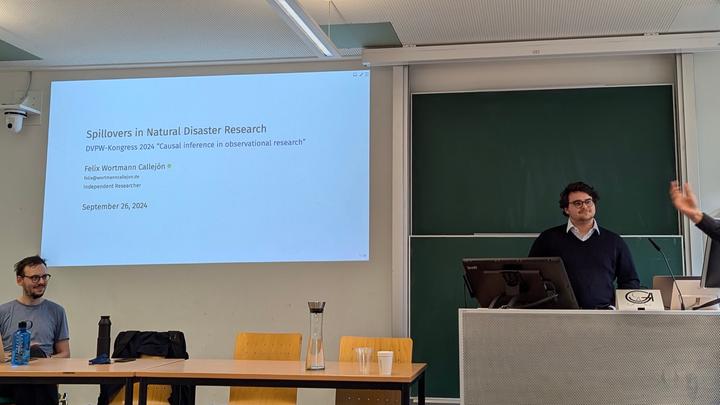Spillovers in Natural Disaster Research

Abstract
Natural disasters and extreme weather events – in many cases direct consequences of climate change – are commonly used as sources of exogenous variation for the causal study of political attitudes and behaviour. Counterintuitively, recent studies conclude that the effect of exposure to the consequences of climate change on pro-environmental behaviour is small to negligible. I formalise the argument that studies that exploit local variation in direct exposure to extreme weather suffer from treatment spillover – violating SUTVA – and thus underestimate the total effect. I show that a naive difference-in-differences design estimates an unidentified quantity which requires further assumptions to be commensurate with quantities of theoretical interest. These assumptions are unlikely to be met in the context of extreme weather events which draw nationwide attention. Empirically, I use data from the German Longitudinal Election Study to study the effect of the 2021 West German floods on pro-environmental attitudes. I initially replicate the analyses of other studies on the same event, yielding similar small and null findings, before estimating a series of average treatment effects, using an Unexpected Event during Survey Design and a Difference-in-Differences design and indeed find the expected effects. The comparison with the replication of the other studies shows that my findings are not a result of the idiosyncrasy of my data. My theoretical findings backed by empirical evidence have implications for the use of spatial estimators in climate policy research, as well as for the understanding of natural disasters as catalysts for public policy change.